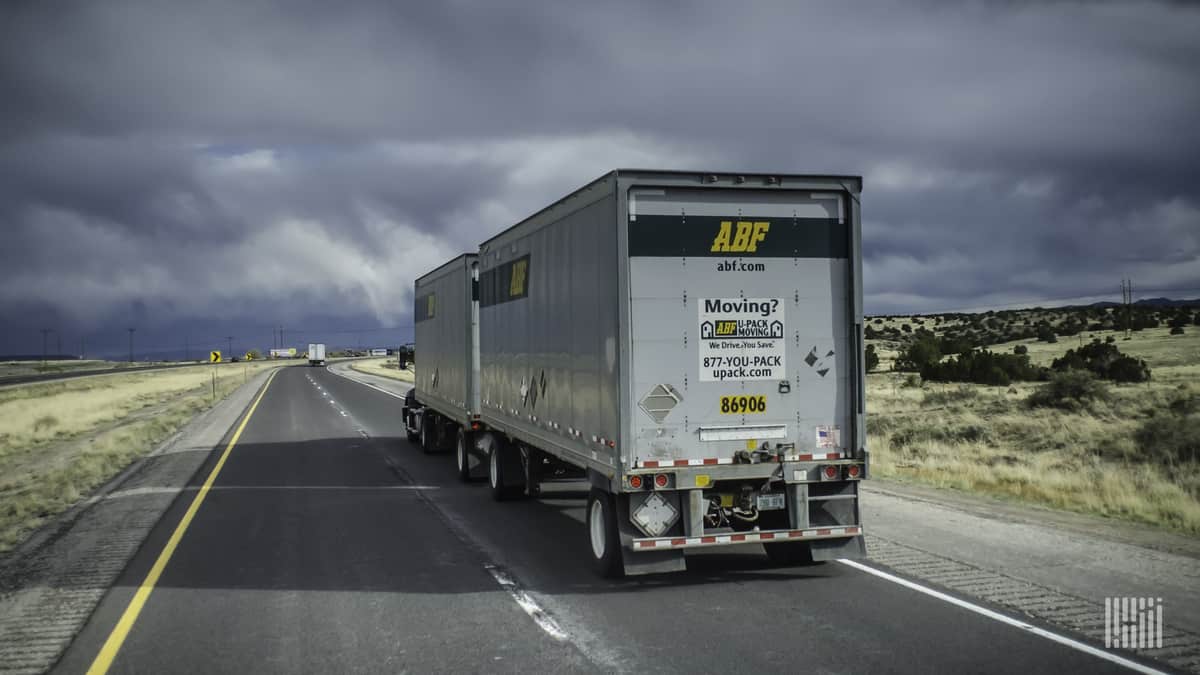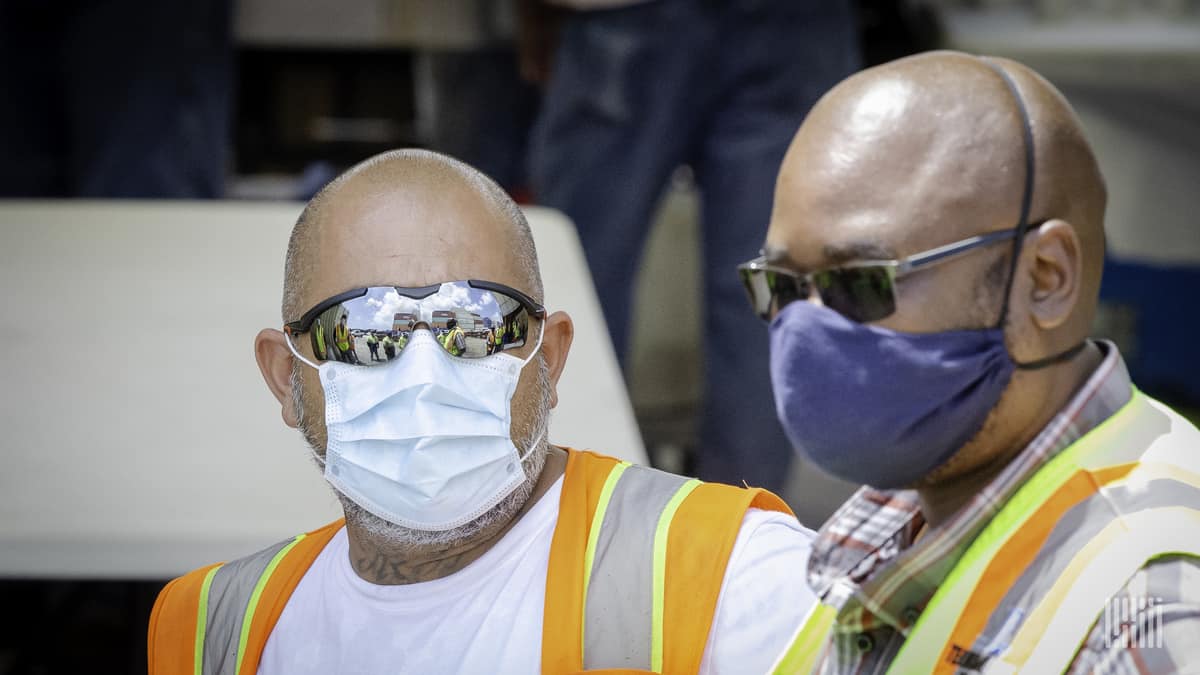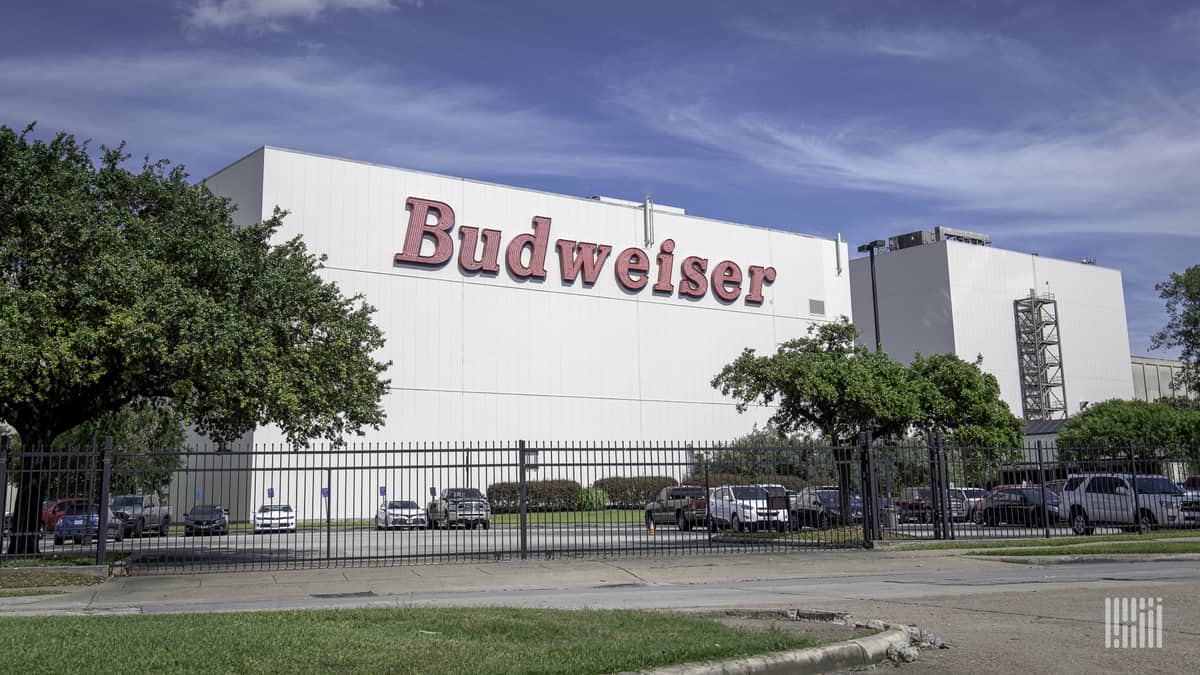The views expressed here are solely those of the author and do not necessarily represent the views of FreightWaves or its affiliates.
Truck drivers have always kept our economy moving. About 80% of all cargo in the United States is transported by trucks, and the trucking industry itself is responsible for roughly 6% of all full-time jobs in the country – employing about 3.5 million professional truck drivers. Without truckers, the American economy would grind to a halt.
No event in recent history has illuminated this fact more than the COVID-19 pandemic. From large carriers to family-owned operators, there are countless examples of truck drivers stepping up and continuing to deliver the essential supplies that Americans need during this unprecedented time.

(Photo: Jim Allen/FreightWaves)
Here are just a few examples:
- Anheuser-Busch pivoted to manufacture and deliver more than 500,000 bottles of hand sanitizer for COVID-19 relief efforts.
- Gulf Winds International, a shipping and logistics carrier, recently delivered an emergency relief supply of hand sanitizer to port workers across the Gulf and East Coast.
- Less-than-truckload carrier ABF Freight has shipped critical ventilator parts across the country.

(Photo: Jim Allen/FreightWaves)
- And in just one week in April, drivers for GP Transco delivered 15 million pounds of food to grocery stores and 10,000 pounds of medical gloves to healthcare workers.
White House honors truckers
Recently, the White House held a celebration honoring truckers. I’m glad a spotlight has been put on this often-overlooked industry. It’s important to recognize the work truckers are doing during this critical time to keep our economy running, our hospitals stocked, and our refrigerators full. But recognition isn’t enough.
Trucking is one of the most dangerous jobs in the United States, a harrowing fact that has remained virtually unchanged over the last decade, despite advancements in vehicle and driver safety technology. According to the most recent data from the Bureau of Labor Statistics, truck drivers had the highest number of fatalities of any occupational group in 2018. In that year alone, 831 heavy-duty and tractor-trailer truck drivers were killed on the job.
Now more than ever – with many truck drivers working overtime and putting their health at risk to deliver essential goods – driver safety should be a priority for every commercial fleet. Trucking is a hazardous job, but it’s one that we can make safer with new technology that has been developed in the past few years.

(Photo: Jim Allen/FreightWaves)
Together for Safer Roads
That’s why Together for Safer Roads (the organization I work for) launched the Global Leadership Council for Fleet Safety, a coalition of private sector companies dedicated to preventing traffic crashes, injuries and deaths on roadways around the world. A primary goal of the council is to foster cross-sector collaboration that helps identify and scale best practices on road safety. The newest member of our council, Samsara, is leading innovation in an area we believe to be critical to this mission – technology.
Technological innovations in driver safety provide more visibility and data for commercial fleets than ever before – making it possible to coach high-risk driving behavior, proactively prevent collisions, and save lives of truck drivers and civilians. For example, advanced driver assistance systems (ADAS) originally developed for autonomous vehicles are now being adapted for commercial fleets. One promising application of this technology is advanced dash cams that use artificial intelligence to detect potential dangers like distracted driving, near collisions and tailgating, and warn drivers in real time.

(Photo: Jim Allen/FreightWaves)
According to the U.S. Department of Transportation’s Volpe Center, “connected vehicle technologies have the potential to prevent and mitigate the severity of an estimated 5.338 million police-reported crashes annually, in which over 32,000 people are killed and over two million people are injured.” Research by the Federal Motor Carrier Safety Administration has also documented the safety benefits of telematics and other vehicle safety technology.
Technology, of course, is only one part of the solution. But for fleets that are committed to the safety of their drivers, technology is a great place to start and can serve as the foundation of a broader initiative that builds a safety-first culture over time.
“Drivers are critical to our economy, and we must support them and the communities they operate in,” said Kiren Sekar, Executive Vice President of Products at Samsara. “We are committed to working with our partners to advance the adoption of new technologies, including artificial intelligence, to prevent accidents, exonerate safe drivers and promote a culture of safety.”

(Photo: Jim Allen/FreightWaves)
Samsara customer Anheuser-Busch, a founding member of Together for Safer Roads and one of the largest fleets in the country, has embraced this vision for the future.
“At Anheuser-Busch, we are committed to working alongside TSR and our partners to help improve the safety of communities where our employees, families, partners and consumers all share the same roads” said Adam Warrington, Vice President, Better World at Anheuser-Busch. “Our drivers are critical to our business and through collective action to better understand and improve road behaviors, we can help make our roads safer and support those who drive our business forward.”
COVID-19 has put a newfound spotlight on this industry – an industry that’s too often overlooked. But as we adjust to new ways of life, the road safety hazards that millions of professional truck drivers face every day will not go away. Let’s not take our professional drivers for granted anymore. It’s more critical than ever to focus public and private sector collaboration and technological innovation on driver safety. Truckers are caring for us; it’s time we cared for them.










